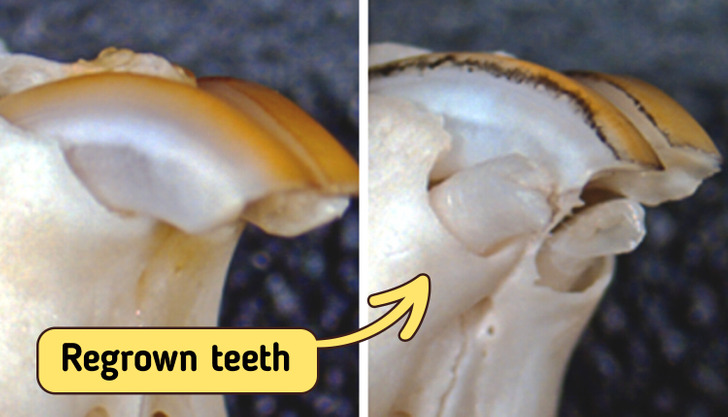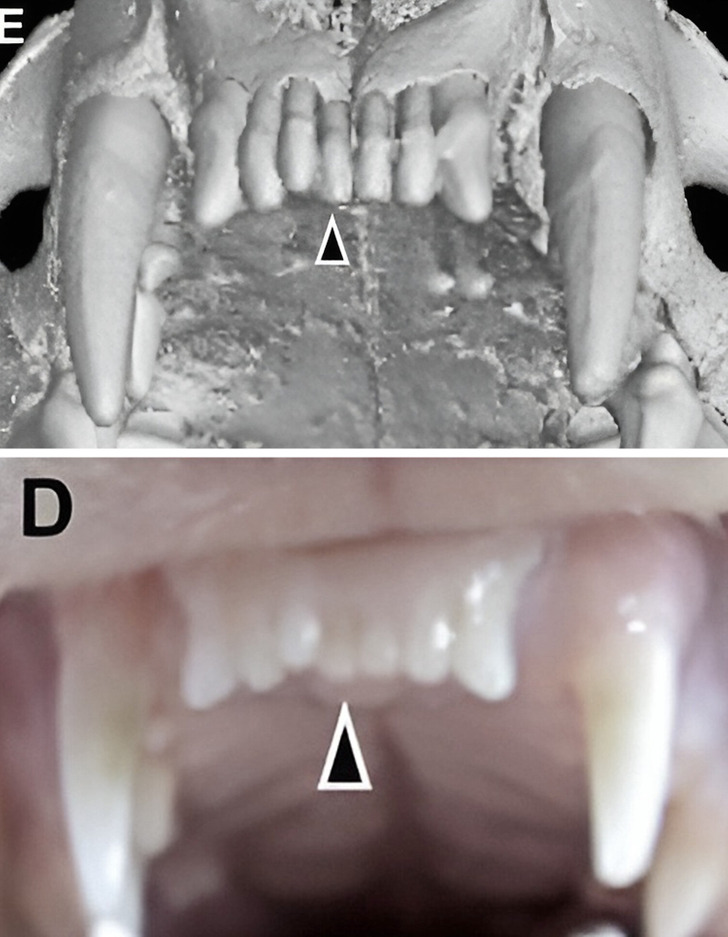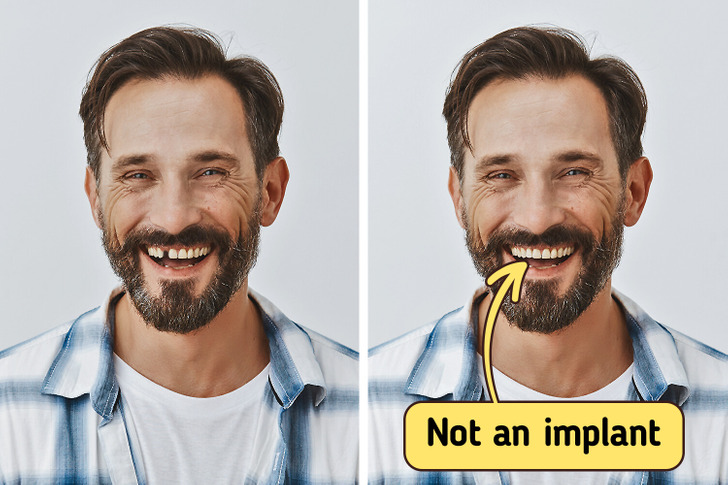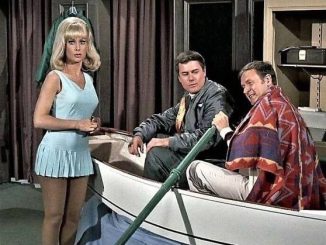The tooth fairy is a welcome guest for any child who has lost a tooth. Not only will the fairy leave a small gift under the child’s pillow, but they be assured of a replacement tooth in a few months. Unfortunately, the scenario is quite different for adults grappling with a loss of teeth. Luckily, there may be some hope thanks to a new study performed by scientists at Kyoto University and the University of Fukui.
A dental breakthrough
While the typical adult mouth houses 32 teeth, approximately 1% of the population exhibits variations of them, either possessing more or fewer teeth due to congenital conditions. Researchers have delved into the genetic factors behind cases of excessive teeth, seeking valuable insights into the potential regeneration of teeth in adults. This study is the first to show that monoclonal antibodies can help regrow teeth. It suggests a new way to treat a dental problem that currently requires implants and other artificial solutions.
A bit of science
The research team disclosed that an antibody targeting a specific gene, known as uterine sensitization-associated gene-1 (USAG-1), can induce tooth development in mice affected by tooth agenesis, a congenital condition. The findings were published in the journal, Science Advances.
As per Katsu Takahashi, a senior lecturer at the Kyoto University Graduate School of Medicine and one of the principal contributors to the study, the essential molecules crucial for the development of teeth have already been pinpointed. “The morphogenesis of individual teeth depends on the interactions of several molecules including BMP, or bone morphogenetic protein, and Wnt signaling,” says Takahashi.

On April 13, 2021, the University of Kyoto posted its first pic of newly-grown teeth in mice.
BMP and Wnt are involved in more than just tooth development; they affect the growth of organs and tissues early in the body’s development. Because drugs affecting them directly might have broad side effects, scientists are cautious. To find a potentially safer method, researchers focused on the gene USAG-1, thinking that aiming at factors countering BMP and Wnt specifically in tooth development could be more precise.
“We knew that suppressing USAG-1 benefits tooth growth. What we did not know was whether it would be enough,” added Takahashi.
The first results
Scientists looked at how different monoclonal antibodies affect USAG-1. Monoclonal antibodies are often used to treat things like cancer and arthritis and for making vaccines. Tests with this antibody showed that BMP signaling is crucial for deciding the number of teeth in mice. Also, just one treatment was enough to grow a whole tooth. Further tests confirmed these positive results in ferrets too.
“Ferrets are diphyodont animals with similar dental patterns to humans. Our next plan is to test the antibodies on other animals, such as pigs and dogs,” explained Takahashi.

Fully regrown frontal teeth in ferrets
The next steps

Now, scientists are going to test the drug on healthy adults. If that goes well, the team plans to try it on kids aged 2 to 6 with a rare tooth problem called anodontia, a genetic disorder defined as the absence of all teeth. These kids will get one shot of the drug to see if it makes their teeth grow. If everything works out, the medicine might be approved by 2030.
Takahashi sees the new medicine as an additional choice for individuals who are missing some or all of their teeth.
“The idea of growing new teeth is every dentist’s dream,” Takahashi told the Japanese newspaper, The Mainichi in June this year. “I’ve been working on this since I was a graduate student. I was confident I’d be able to make it happen.”
So hopefully, by the year 2030, humans will get a chance to have their third generation of teeth grown and say goodbye to implants. Until then, make sure to keep your teeth strong and healthy — this article will help you with that.
Preview photo credit KyotoU_News / Twitter
The Shocking Reason Kate Middleton Snubbed Lilibet’s Birthday Party!
Princess Lilibet doesn’t know much about her parents’ past. Born in the US after Prince Harry and Meghan Markle moved to Montecito, California, her life has been very different from her father’s. Lilibet celebrated her first birthday in the UK, which led to a lot of gossip.
Her royal aunt and uncle, Prince William and Kate Middleton, along with her cousins, Prince George, Princess Charlotte, and Prince Louis, did not attend her birthday party. The late Queen Elizabeth was there, but she reportedly refused to take a picture with Lilibet.
People quickly noticed that William and Kate were not at Lilibet’s birthday party. Despite the strained relationship between the Waleses and Sussexes, one of Meghan’s friends publicly mocked Kate, refusing to believe this was the reason for their absence.
On June 4, 2021, Harry and Meghan shared the happy news that their daughter, Lilibet, was born. She is their second child after their son, Archie, was born in 2019.
A spokesperson for the couple said, “It is with great joy that Prince Harry and Meghan Markle, The Duke and Duchess of Sussex, welcome their daughter, Lilibet ‘Lili’ Diana Mountbatten-Windsor, to the world.”
The Royal Family, including Prince William and Kate Middleton, congratulated Harry and Meghan on Lilibet’s birth. However, the relationship between the two families has since grown colder.
Lilibet was born in the US after her parents had left the Royal Family, allowing her to grow up away from the paparazzi that followed Harry and Meghan. This gave Lilibet a calmer, more private start in life.
Since the Sussexes live in the US, it took some time for Lilibet’s UK family to meet her. Finally, during Queen Elizabeth’s Platinum Jubilee Celebration in 2022, Lilibet met her great-grandmother. On June 4, 2022, Lilibet celebrated her first birthday at Frogmore Cottage, their UK home at the time.

Meghan and Harry hosted a backyard picnic for their daughter Lilibet’s birthday at Frogmore Cottage. Their friend, Misan Harriman, shared a lovely photo of Lilibet celebrating her big day. This picture is one of the few the public has seen of her.
This picnic was special because it was the first time Lilibet met her great-grandmother, Queen Elizabeth, and her grandfather, then-Prince Charles. Even though this was an important family moment, no photos were made public. According to The Sun, Queen Elizabeth did not allow Harry and Meghan to have a photographer present during the introduction.
An insider told The Sun, “Harry and Meghan wanted their photographer to capture the moment Lilibet met the Queen, but they were told no chance. It was a private family meeting.”
Royal expert Camilla Tominey mentioned that the Queen didn’t want to take a photo because she had a bloodshot eye and did not want such a photo to be made public. Tominey also said that Harry hoped to get a picture of Lilibet and the Queen sometime in the future.
However, new reports suggest a different reason for the Queen’s decision. Royal expert Phil Dampier said that the Queen didn’t trust Harry and Meghan at the time because they had recently done an interview with Oprah Winfrey. This made her avoid taking a picture with her great-granddaughter.

“Even though the Queen wasn’t in the best health, she was still very sharp,” Dampier told The Sun. “She knew that any photo taken of her with Lilibet could be used in the wrong way. She wasn’t happy that the name Lilibet was chosen without her input and firmly said ‘no photographs’.”
Reports say that only Zara Tindall and Peter Phillips’ children attended the party. Prince William, Princess Kate, and their kids did not attend. There was a lot of tension then, and it hasn’t gotten much better.
Prince William and Kate Middleton said they had other commitments on the day of Lilibet’s birthday party, which is why they couldn’t attend. However, royal expert Christopher Andersen told Us Weekly that William and Kate made “no effort” to introduce their children, George, Charlotte, and Louis, to Lilibet during Harry and Meghan’s UK visit.
After William and Kate declined the invite to Lilibet’s 1st birthday picnic at Frogmore Cottage, one of Meghan’s friends was quite annoyed.
Garcelle Beauvais, a star on the show The Real Housewives of Beverly Hills, told E! that it was “shady” for William and Kate to skip the party.
“What’s going on is, ‘What a coincidence, we’re out of town; I’m washing my hair.’ There’s a little shade there,” Beauvais told E!.
“They couldn’t delay their flight a few hours to meet Lilibet and Archie?”
Family feuds are never pleasant, and they get even more complicated when children are involved.

The ongoing “battle of the brothers” and Harry and Meghan’s move to the US means Harry hasn’t seen his nephews and niece for quite some time. According to royal biographer Tom Quinn, Harry is very upset about this.
“Harry is very sad not just because he doesn’t have a relationship with George, Charlotte, and Louis, but also because his own children don’t get to know their cousins,” Quinn told the Mirror.
“Harry and Meghan wish they could fix this. They want the cousins to meet regularly and have a good relationship as they grow up, but they don’t see how to do it while they are estranged. Harry has said he hopes the cousins can at least be friends when they are adults.”
On Tuesday, June 4, 2024, Lilibet celebrated her 3rd birthday. Her first birthday was celebrated in the UK. Her second birthday was a big, celebrity-filled party in California, but this year the celebration was low-key.

According to People Magazine, Lilibet’s birthday celebrations started with a “pre-birthday bash.” Over the weekend, Harry, Meghan, and their children had a party at their home in Montecito. The guests were close friends, family, and some of Lilibet’s friends.
Harry and Meghan prefer to keep their children out of the public eye and rarely share information or photos of Archie and Lilibet. Both kids did appear in their Netflix series released in December 2022, where fans noticed that Archie spoke with an American accent.
Recently, Harry and Meghan went on a three-day trip to Nigeria to promote the Invictus Games. While visiting a school in Abuja, Meghan mentioned that Lilibet’s favorite class was “singing and dancing,” likely because she enjoys all the jumping around.
Meghan also shared a sweet moment about her daughter. She told the students that Lilibet, who is about to turn three, once looked at her and said, “Mama, I see me in you.” Meghan explained that while Lilibet meant it literally, she took it to mean something deeper, seeing herself in her daughter and in everyone around her.
Although Harry and Meghan have kept Archie and Lilibet out of the spotlight so far, that might change in the future.

Royal expert Tom Quinn says that Harry and Meghan are thinking about bringing their children with them on future trips abroad.
“Meghan knows how good this will look,” Quinn told the Mirror. “A charming royal couple with their charming children will get the kind of publicity Harry and Meghan want, especially since they are aiming to be successful entrepreneurs.”
Quinn also mentioned, “While Harry and Meghan are becoming more prominent, Kate and William seem to be struggling, and Harry and Meghan are aware of this.”
Do you think Harry and Meghan should keep their children out of the spotlight, or is it a good idea to bring them on future trips? Share this article and let us know your thoughts!



Leave a Reply